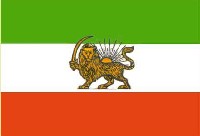Russia alerts international community against forbidding Iran
Russian Foreign Minister Sergey Lavrov on Monday warned the international community against threatening Iran over its nuclear program. "I think that at the current stage, it is important not to make guesses about what will happen and even more important not to make threats," Lavrov said in Athens, Greece. His comments were in response to a request for his reaction to U.S. Defense Secretary Donald Rumsfeld's reported statement that a military option for dealing with Tehran should be kept open. Rumsfeld's remarks were published in a German newspaper interview. Lavrov said that the use of force would be possible only on the basis of the United Nations Charter, Interfax reported. Meanwhile, Deputy Foreign Minister Sergei Kislyak said Monday it would be possible to create a joint venture to enrich uranium for Iran in Russia only if Tehran resumed its moratorium on enrichment activities, Interfax reported.

"Our proposal on creating a joint enterprise remains in force," Kislyak was quoted as saying. "Its fulfillment is possible if Iran returns to the moratorium as is set out in the resolution adopted by the board of the International Atomic Energy Agency."
The IAEA's 35-nation board of governors voted Saturday to report Iran to the U.N. Security Council, which has the power to impose economic and political sanctions. Tehran responded by saying it would start full-scale uranium enrichment and bar surprise inspections of its facilities.
But Iran said it was willing to discuss Moscow 's proposal to shift large-scale enrichment operations to Russian territory in an effort to allay suspicions it is pursuing a weapons program.
Talks on the project were scheduled for Feb. 16 in Moscow .
Russian Defense Minister Sergei Ivanov told Germany 's Frankfurter Allgemeine daily that he was "still hoping for a sensible compromise that Iran would engage in for the sake of its own interests."
"We have made a good proposal. The Iranian leadership must decide shortly," Ivanov was quoted as saying.
He added that "the idea that Russia plays the decisive role is inaccurate. We have good relations with Iran . But we cannot assume that Tehran will follow all Moscow 's advice."
Radzhab Safarov, a Moscow-based expert on Iran , said that this month's talks in Moscow could produce a breakthrough because some Iranian politicians had questioned the wisdom of Iranian President Mahmoud Ahmadinejad's harsh, uncompromising course and had grown increasingly worried about growing international isolation.
"There is a strong chance that these talks will lead to a decision that would help defuse the situation," Safarov said at a news conference.
He added, however, that Iran wants to retain a small-scale Iranian enrichment effort and engage a third nation, preferably China, in the uranium enrichment effort on Russian territory to have a hedge against Moscow using the project to pressure Iran or denying it access to fuel under international pressure.
" Iran is concerned that dependence on Russia could hurt its national interests," Safarov said.
Uranium enriched to a low degree can be used for nuclear reactors, while highly enriched uranium is suitable for warheads. Iran insists it only wants to generate electricity, but the United States and some of its allies contend Tehran is trying to build a weapon.
The IAEA resolution requests the agency's director general, Mohamed ElBaradei, to relay to the Security Council the steps Iran must take to dispel suspicions about its nuclear ambitions.
Safarov said that any U.S. or Israeli military action against Iran would prompt Iran to retaliate by blocking oil deliveries through the Persian Gulf and throwing the global market into chaos, reports the AP.
D.M.
Subscribe to Pravda.Ru Telegram channel, Facebook, RSS!


